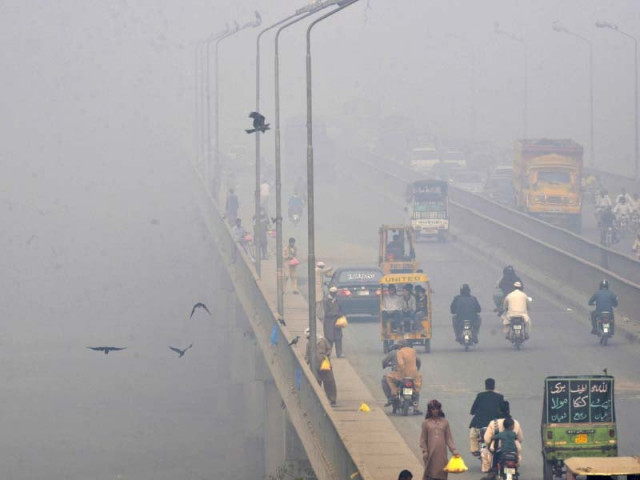Pakistan’s inexorable tryst with pollution
There is a striking difference in air quality data released by public and private institutions

Despite the government’s various efforts to curb effects of environmental pollution in Pakistan, such the 10 billion tree project, cities like Karachi and Lahore have continued to be listed among the most polluted cThere is a striking difference in air quality data released by public and private institutionsThere is a striking difference in air quality data released by public and private institutionsities in the world.
To which, local environmentalists often claim that the country’s unwavering tryst with pollution is rather a farce; created by faulty pollution-testing equipment installed in the region. In addition to which, they also allege that at times data collected by the equipment is only indicative of a specific period during the day, but is falsely used to represent the general status of pollution in the city.
For instance, there is a striking difference in data released by public and private institutions, such as Lahore’s air quality index recorded by IQAir, a Swiss air quality technology company, and the provincial environmental protection agency. Swiss tech data reveals that on October 17, the air quality index was 194, while according to the data of the Punjab Environment Protection Department (EPA), the maximum index was recorded at 181. Similarly, on October 21, according to IQAir, the air quality index in Lahore was 193, while EPA found it to be around 299. Whereas, on October 26, the IQAir issued Index was 209, and the EPA’s was 134.
Addressing public concerns regarding burgeoning pollution levels, Meteorological Department’s Chief Meteorologist Sahibzad Khan, said that often times fog and smog, which are two very different phenomena, are used interchangeably. “It creates a lot of confusion and we need to learn to differentiate between the two. So far however, no fog or smog has been recorded anywhere in Punjab, including Lahore,” said the meteorologist. “That being said, it is advised that the public rely on data provided by the government agency instead of looking at data issued by private companies,” he added, rubbishing international claims of unwavering levels of environmental pollution in Pakistan’s chief cities.
According to Khan, a foreign consulate had installed sensors to monitor air quality near Shimla Hill in Lahore, which is an area where there is a constant flow of traffic. So automatically, the sensors record higher amounts of smoke and pollution in the air, which is reflected in the air quality index issued by the consulate. “It would be not very ethical to attribute the data of one place to the whole of Lahore. We on the other hand, have calibrated our devices to provide more accurate, unbiased data,” expressed Khan.
Lahore College for Women’s University Department of Environment Sciences Chairperson Prof Dr Arfa Tahir said that it wouldn’t be advised to rely on just one sensor’s reading to classify the entire city. Instead, data should be taken from different regions at different times and be averaged out to provide a more accurate rate of air quality index. “Climate change is currently linked to the security of Pakistan. Our geographical placement subjects us to increasing levels of pollution from our immediate neighbours, even when we are less self-polluting in comparison,” the chairperson told.
Adding to which, Punjab Minister of Environment Protection Mohammad Rizwan claimed that there had been no smog in Punjab in the last two years, except haze in some areas. “When the temperature is low, and the humidity in the air increases, the dust particles in the atmosphere join it and take the form of haze, and it starts to look blurry,” the minister explained.
Addressing the questionable placement of foreign-made pollution monitors, he admitted that equipment must installed in a specific style, at a specific location and height for accurate pollution testing.
Speaking further Rizwan said that he is ready to depute a technical team to assist in the recalibration of foreign equipment, and once accurate data is issued, the country is also ready to take the necessary remedial steps. “However, the deliberate defamation of Pakistan with inconsistent and exaggerated data has to stop now,” he asserted, while speaking to The Express Tribune.
Published in The Express Tribune, October 30th, 2021.



















COMMENTS
Comments are moderated and generally will be posted if they are on-topic and not abusive.
For more information, please see our Comments FAQ